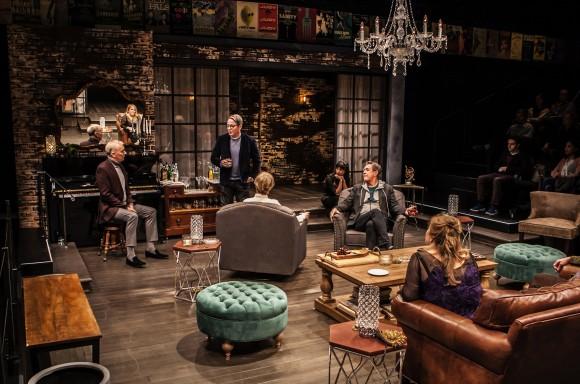NEW YORK—The most insidious societal changes don’t occur through quick or violent means. Rather they are so quiet and unobtrusive one never notices them until it is too late. This chilling point is brought home in Wallace Shawn’s “Evening at the Talk House,” presented by The Group at the Pershing Square Signature Center.
On the 10th anniversary of the opening of his play “Midnight in a Clearing With Moon and Stars,” Robert (Matthew Broderick) and several of the cast and crew have gathered for a reunion at the Talk House, a once-popular club catering to artists.
Nowadays, however, the Talk House has fallen on hard times. The old crowd is all but gone, and many at the reunion have not been there for years. Robert, in fact, was surprised it still existed. That the place is still open at all is due entirely to the determination of the club’s manager, Nellie (Jill Eikenberry).
The fall from grace of Talk House mirrors the state of the theater industry. The art form is now practically nonexistent. The rather depressing offerings have helped to put off a public that seems to be more concerned with feeling happy.
Robert, who hasn’t written a play since “Midnight,” has gone on to write for television, now the prevalent form of entertainment. He currently works on a show featuring Tom (Larry Pine), the leading man of “Midnight” who, like so many others, left the Talk House behind for the allure of “ridiculously expensive, flashier places.”






